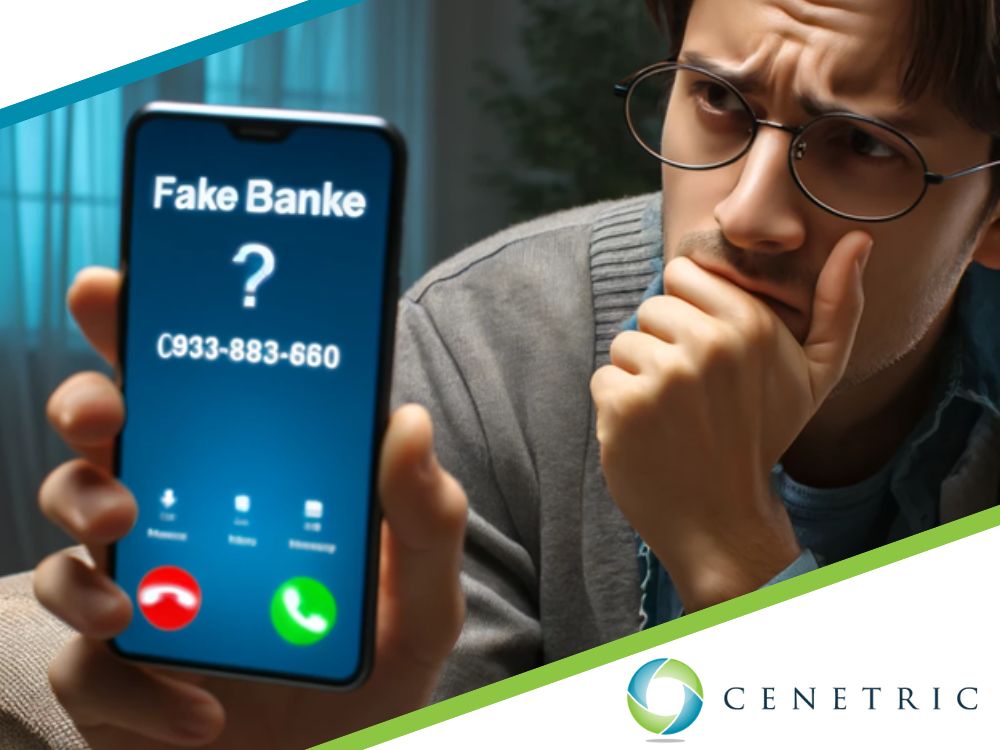
Most of us have learned that calls from unknown numbers are usually a spam marketer – or worse, a scammer hoping you’ll pick up. That’s why three out of every four people won’t answer a phone call from an unknown number, according to a 2024 report.
But the report also shares that 73% of us will pick up if the name and logo of the company calling is displayed. This can be helpful so you don’t accidentally screen calls from your dentist’s office about an appointment or the repair shop letting you know your car is ready.
It becomes unhelpful in a hurry when scammers prey on this trust with phone-number spoofing scams, in which a criminal gets the name and number of a legitimate business, like your bank or credit card company, to appear on your caller ID so you’re more likely to pick up.
It’s a profitable scam. According to the Federal Trade Commission, 21% of reported fraud in 2023 started with a phone call — and the median amount lost via phone call ($1,350) was the largest of any type of contact method.
What happens in phone-number spoofing scams?
Typically, during one of these incidents, the scammers will call and tell you there’s some sort of problem with your account with a company you’re familiar with. The caller ID will display the company’s real phone number and name, easily leading you to believe it’s legitimate.
But it’s not. The scammer is simply masking their phone number with the number of a company you’re likely to trust. The goal is to get you so panicked that you’re about to lose money that you don’t stop to think about what they ask you next: to give them your PIN, password or other private information.
We can’t emphasize this enough: A real representative of your bank will never initiate a call to ask for private information like your PIN or password over the phone (or text or email). Do not share it — ever!
In a related scenario, scammers with some of your Personally Identifiable Information (PII), like your name, phone number, and email, will use it to generate a code to access your account that then is legitimately sent to you by your bank. Then the scammer will call you and ask you to read them the code you received, and – bam! – they have full access to your account.

What to do if you suspect you’re on a spoofing call
The best thing to do if you’re nervous about the legitimacy of the call you’ve received is to hang up and call your bank or credit card company directly through a customer service number you know is legitimate. You can typically find this phone number on your card, on their website, or on a statement.
Once you reach the company through their real phone number, it will be no problem for the agent you speak with to verify if there really is a problem. If there’s not, you can report the fraud attempt to the agent and take steps to protect your account. If you did provide private information to a scammer, the company can work with you to recover funds and secure your account.
You’re helping other customers by reporting these incidents, whether the scammer was successful or not. These companies want to know when fraud attempts are happening to their customers so they can warn others and create new protections.
If you think you’ve received a call spoofing attempt or if you’re a victim of a scam, you can also report it to the Federal Communications Commission as a consumer. (Had your business number spoofed? Read on!)
How phone-number spoofing scams hurt your business
There are two ways these scams can affect your business – by being attacked itself and through the reputational damage that can occur in your name.
Just like other social engineering scams, phone-number spoofing scams can happen just as easily to a business as they can to an individual.
A 2024 study by Hiya reported that 34% of IT and security leaders said that their business had fallen victim to a phone scam. To prevent one of your employees accidentally giving a spoofer access to your business accounts, ensure your team is trained to know the signs of spoofing and what to do if they suspect it.
Scammers know just how to inspire panic in someone on your team and get them to act first and ask questions later. Proper, frequent training is imperative for your business’s financial safety.
And, while it might not seem fair, fraud committed by scammers using your name can damage your reputation even though you had nothing to do with it. The Hiya study also showed that after an impersonation call, 39% of survey respondents said they perceived the business negatively or have reduced trust in the company’s security procedures.
Even more alarming is the fact that 33% said they then became suspicious of any calls coming from that business and 12% actually switched brands after receiving an impersonation call. The impact of phone-number spoofing is no small thing – you don’t have to be the perpetrator for a scam to affect your customers’ loyalty and your revenue.
If you suspect your business’s number has been used for spoofing scams, you can report it to the FCC in a special portal for private entities.

Steer clear of phone-number spoofing scams with the right training and security
Phone-number spoofing scams are frustrating at best and financially devastating at worst. The Cenetric team can help you protect your business by choosing the right systems, helping you implement best practices, and training you and your team on what to look for.
Cenetric has the experience to get — and keep — you covered when it comes to all things cybersecurity. If you’re here in Kansas City (or even beyond), we want to hear about your challenges and help.
